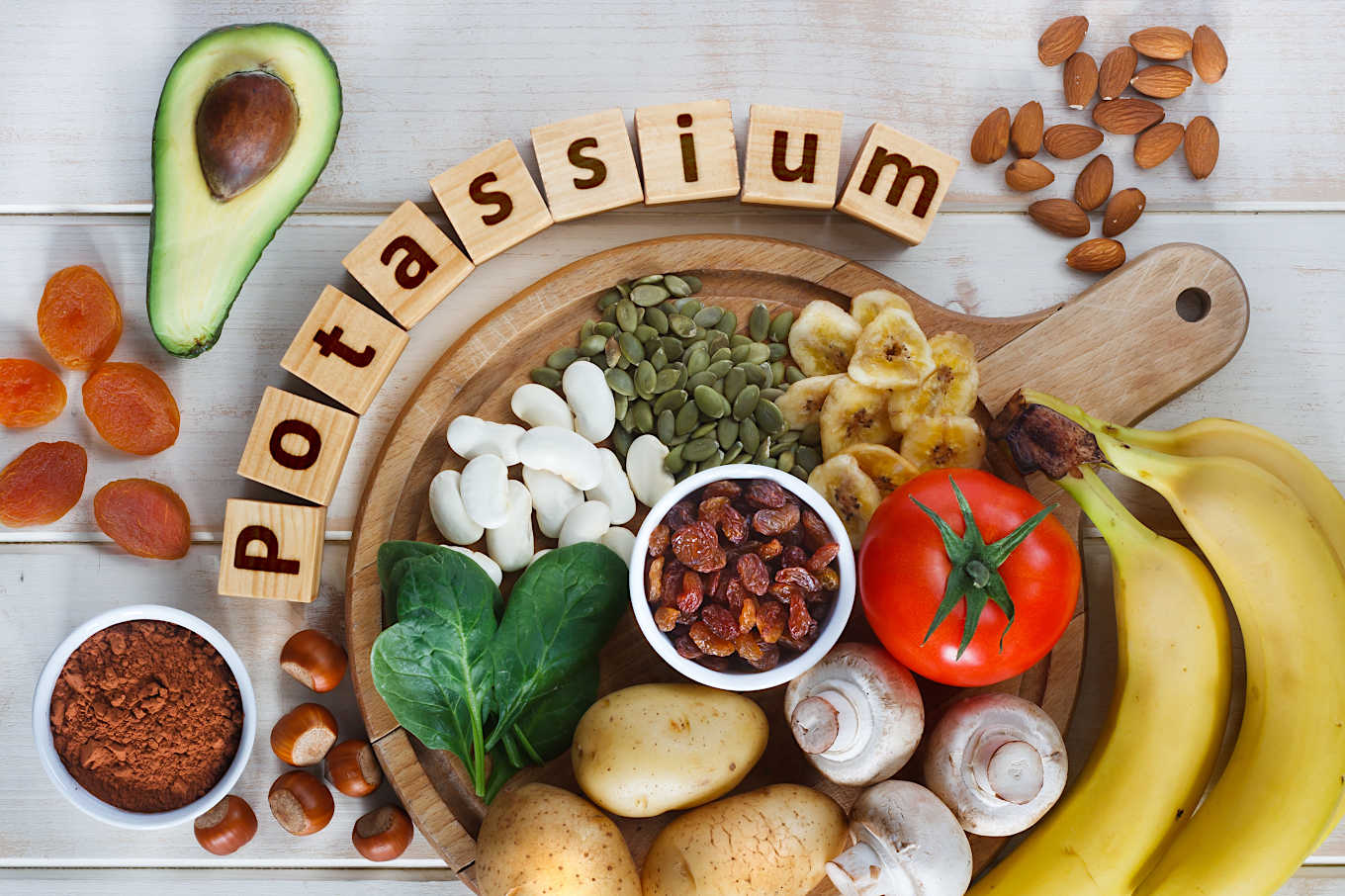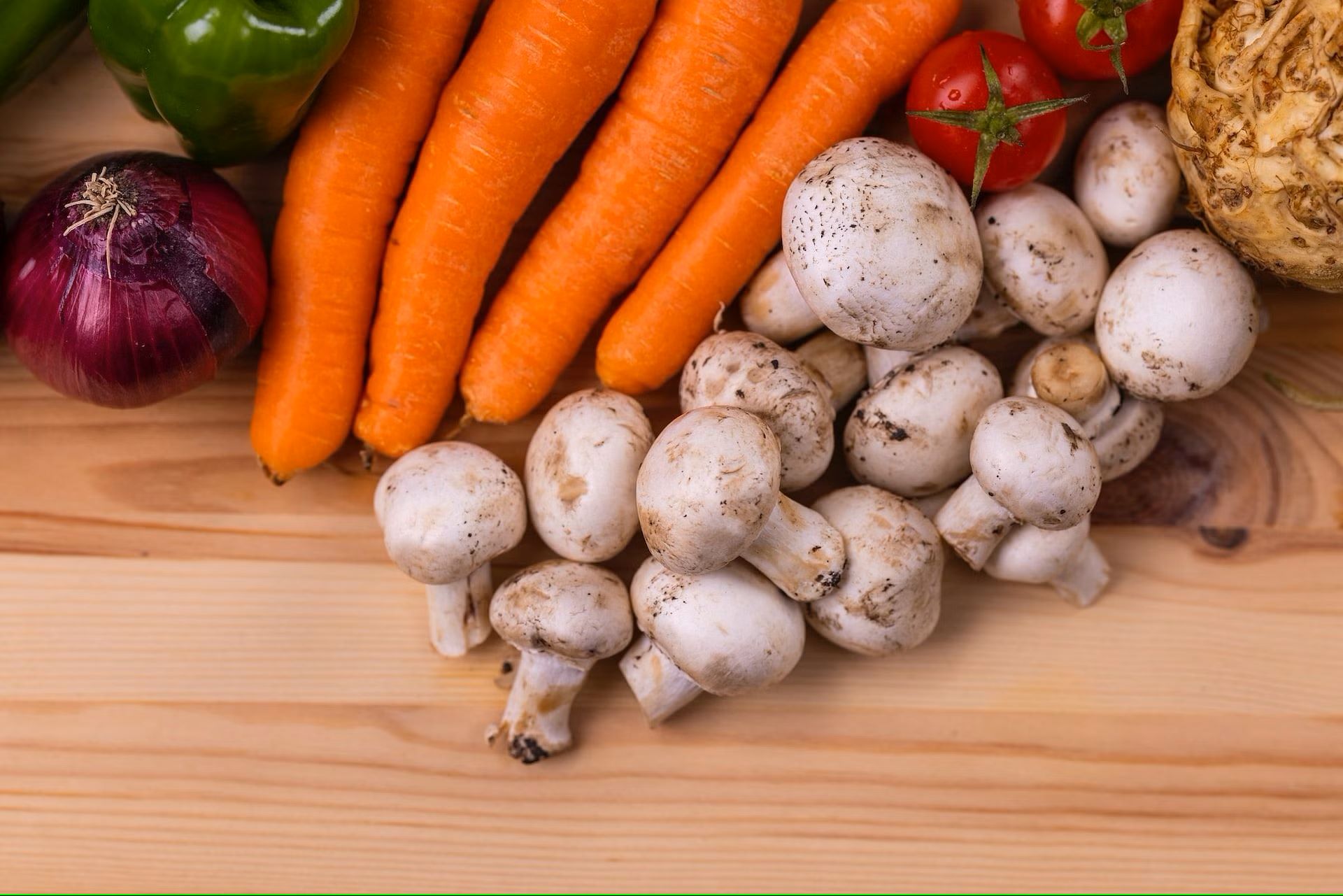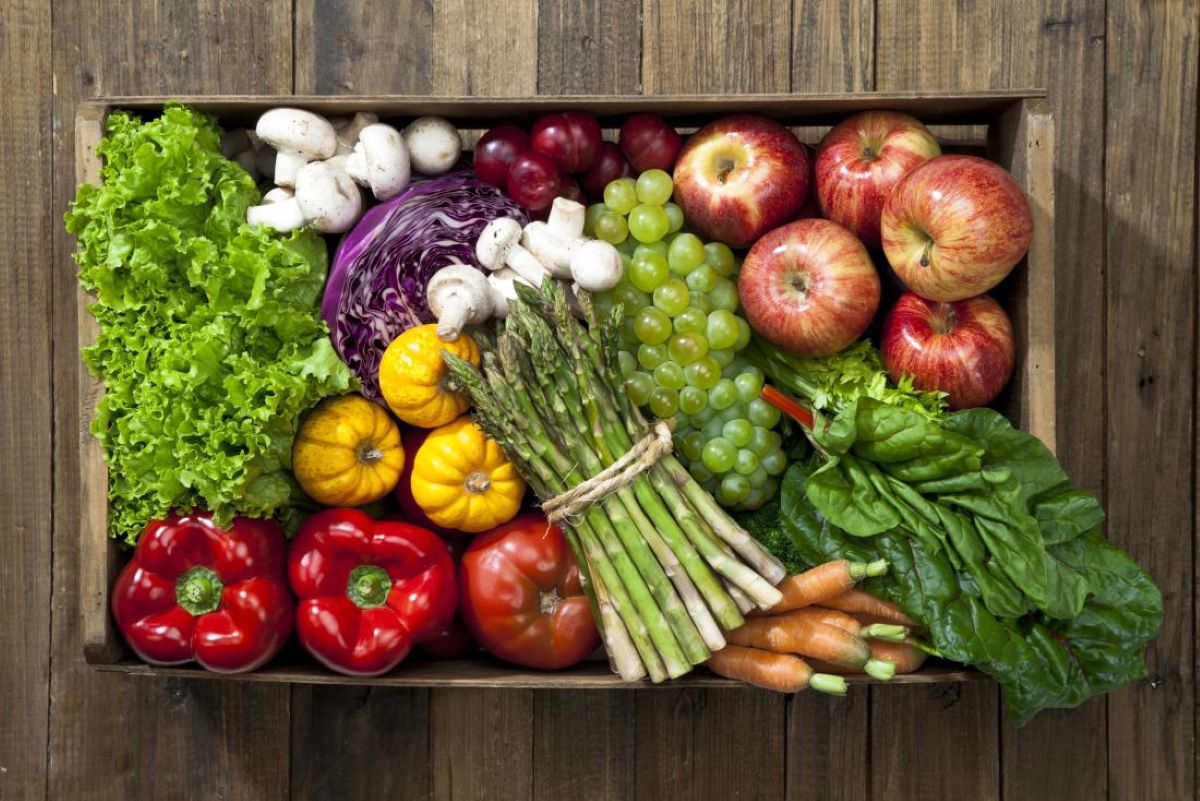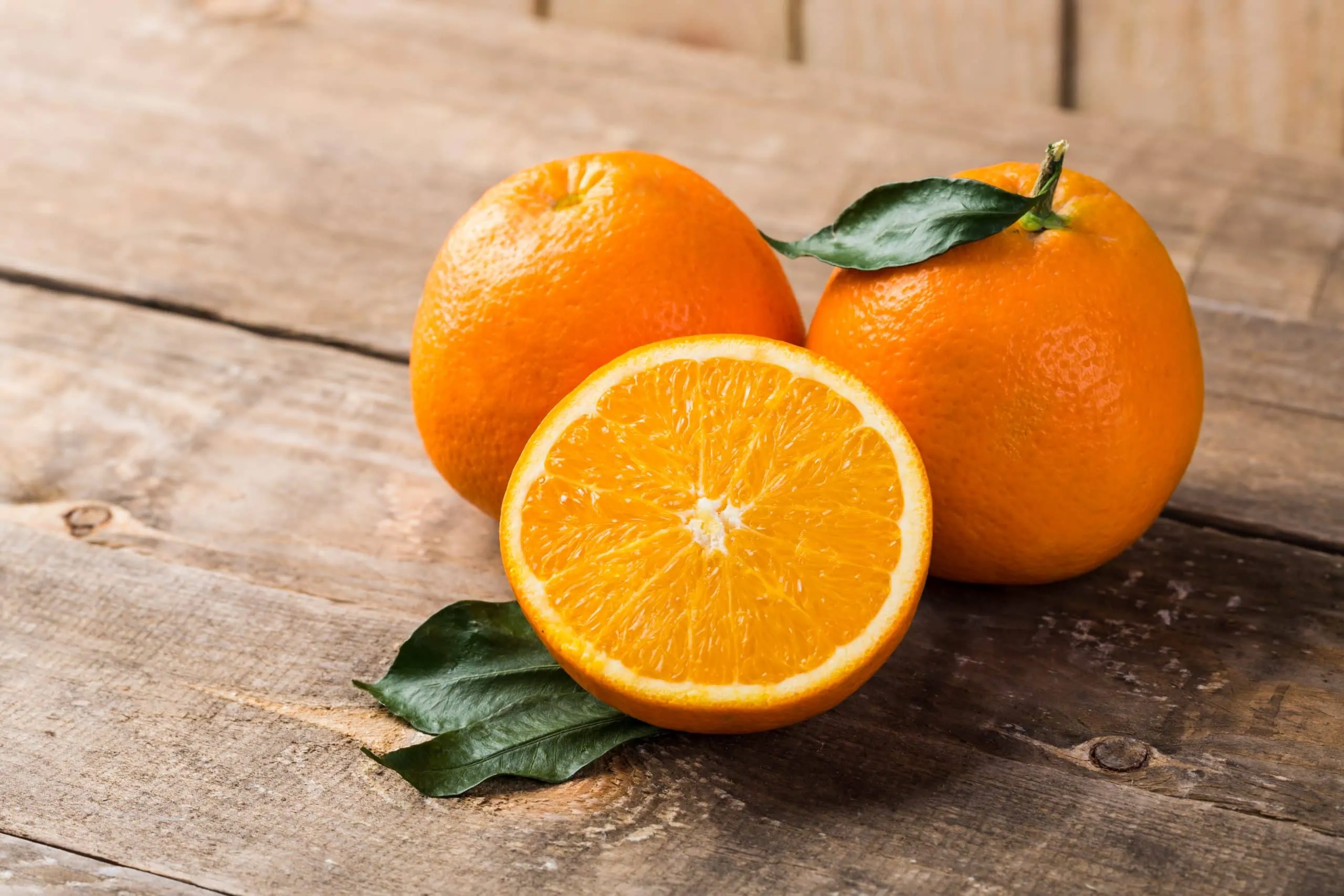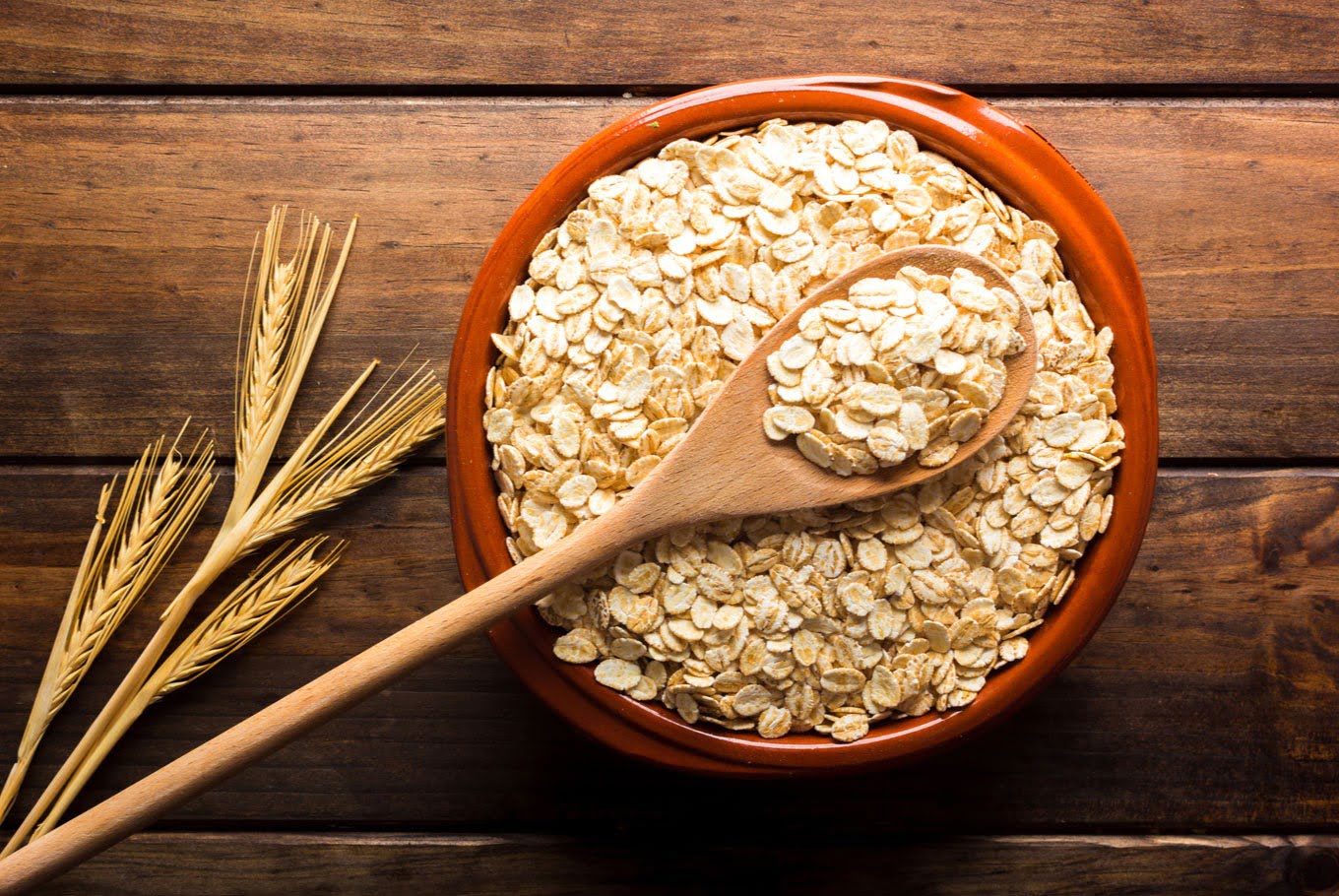Home>Gardening News and Trends>Latest News>What Vegetables Have Omega 3


Latest News
What Vegetables Have Omega 3
Modified: January 22, 2024
Discover the latest news on omega-3 rich vegetables, including their benefits and sources. Stay informed and promote a healthier lifestyle!
(Many of the links in this article redirect to a specific reviewed product. Your purchase of these products through affiliate links helps to generate commission for Chicagolandgardening.com, at no extra cost. Learn more)
Table of Contents
Introduction
Welcome to the world of omega-3 fatty acids, a group of essential nutrients that play a crucial role in maintaining our overall health. Omega-3s are well-known for their numerous benefits, such as supporting brain function, reducing inflammation, and promoting heart health. While oily fish like salmon and tuna are often touted as excellent sources of omega-3s, vegetarians and vegans might wonder how they can incorporate these essential fatty acids into their diet.
Fortunately, there are several vegetables that are rich in omega-3s and can provide the necessary nutrients without the need for consuming animal products. Whether you’re a strict vegetarian or simply looking to diversify your diet, including omega-3-rich vegetables in your meals can help you meet your nutritional needs and support overall well-being.
In this article, we will explore some of the top vegetables that are high in omega-3 fatty acids and discuss how you can easily incorporate them into your vegetarian diet to reap their health benefits. From flaxseeds to spinach, kale to soybeans, we’ll delve into the nutritional profiles and potential health benefits of each of these plant-based omega-3 sources. So, let’s dive in and discover the wonderful world of vegetables with omega-3s!
Understanding Omega-3 Fatty Acids
Before we explore the vegetables that are rich in omega-3 fatty acids, let’s take a closer look at what omega-3s actually are and why they are important for our health.
Omega-3 fatty acids are a type of polyunsaturated fat that are essential for our body’s functioning. They are called “essential” because our bodies cannot produce them on their own, so we need to obtain them through our diet. There are three main types of omega-3 fatty acids: alpha-linolenic acid (ALA), eicosapentaenoic acid (EPA), and docosahexaenoic acid (DHA).
ALA is predominantly found in plant-based sources, while EPA and DHA are primarily found in marine sources like fish and seafood. However, our bodies have the ability to convert ALA into EPA and DHA to some extent, although this conversion is not very efficient. That’s why it’s important for vegetarians and vegans to include a variety of plant-based sources of omega-3s in their diet.
Omega-3 fatty acids are essential for optimal brain function and development, as well as maintaining a healthy heart. They have been linked to reducing inflammation in the body, improving cognitive function, supporting healthy skin, and even boosting mood and reducing the risk of depression.
Research has also shown that omega-3s may have a positive impact on heart health by reducing triglyceride levels, lowering blood pressure, and preventing the formation of blood clots. These benefits make omega-3 fatty acids an important nutrient for overall health and well-being.
Now that we have a better understanding of what omega-3 fatty acids are and their importance, let’s explore the variety of vegetables that can provide us with these beneficial nutrients.
The Importance of Omega-3 in a Vegetarian Diet
Omega-3 fatty acids play a crucial role in our overall health, regardless of whether we follow a vegetarian or non-vegetarian diet. However, for vegetarians and vegans, it becomes even more important to ensure an adequate intake of omega-3s as they may have limited sources available to them.
A vegetarian diet is typically rich in plant-based foods, which can provide essential nutrients like fiber, vitamins, and minerals. However, when it comes to omega-3 fatty acids, many plant-based sources contain the ALA form, which our body needs to convert into EPA and DHA. This conversion is not very efficient, and as a result, vegetarians may have lower levels of EPA and DHA compared to those who consume fish and seafood.
That’s why it’s crucial for vegetarians to include omega-3-rich foods such as vegetables in their diet. By incorporating these plant-based sources of omega-3s, vegetarians can ensure they are getting a sufficient supply of these essential fatty acids to support their overall health.
Omega-3 fatty acids have been extensively studied for their role in brain health and cognitive function. DHA, in particular, is a major component of our brain and is involved in its growth and development. It plays a vital role in improving memory, concentration, and overall cognitive performance.
Moreover, omega-3s are known for their anti-inflammatory properties. Inflammation is the body’s natural response to injury or infection, but chronic inflammation can lead to various health problems. By including omega-3-rich vegetables in their diet, vegetarians can help reduce the risk of chronic diseases such as heart disease, arthritis, and even certain types of cancer.
Another important aspect of omega-3s is their potential role in supporting heart health. Research suggests that a higher intake of omega-3 fatty acids is associated with a lower risk of heart disease. By consuming a variety of omega-3-rich vegetables, vegetarians can help maintain healthy cholesterol levels, reduce blood pressure, and promote overall cardiovascular well-being.
Incorporating omega-3s into a vegetarian diet is not only beneficial for health but can also contribute to the sustainability and ethical choices that many vegetarians embrace. By choosing omega-3-rich vegetables, vegetarians can reduce their reliance on fish and seafood as the sole source of these essential fatty acids.
Now that we understand the importance of omega-3s in a vegetarian diet, let’s explore some of the top vegetables that are abundant in these essential nutrients.
Vegetables Rich in Omega-3
For vegetarians and vegans, incorporating omega-3 fatty acids into their diet can be achieved through a variety of vegetables. These plant-based sources not only provide the essential ALA form of omega-3 but also offer a range of other beneficial nutrients. Let’s explore some of the top vegetables that are rich in omega-3 fatty acids:
- Flaxseeds: Flaxseeds are one of the best sources of omega-3s for vegetarians. They contain a high amount of ALA and are also rich in fiber, antioxidants, and lignans that have been associated with various health benefits.
- Chia Seeds: Chia seeds are another excellent plant-based source of omega-3s. They are packed with ALA, fiber, protein, and various other essential nutrients. Chia seeds can be easily added to smoothies, cereal, yogurt, or used as an egg substitute in baking.
- Brussels Sprouts: Brussels sprouts are not only delicious but also a nutritional powerhouse. They contain a good amount of ALA omega-3s along with fiber, vitamins, and minerals. Roasting or sautéing Brussels sprouts can bring out their natural flavors.
- Spinach: Spinach is an excellent leafy green vegetable that offers a wide range of nutrients, including omega-3s. This versatile vegetable can be enjoyed sautéed, steamed, or as an addition to salads and smoothies.
- Kale: Kale is another leafy green that is well-known for its nutrient density. It contains a decent amount of omega-3s, along with vitamins, minerals, and antioxidant compounds. Try adding kale to salads, soups, or even make kale chips for a healthy snack.
- Purslane: Purslane is a lesser-known vegetable that is often considered a weed. However, it is incredibly rich in omega-3s, vitamins, and minerals. It can be added to salads, stir-fries, or even used as a garnish.
- Soybeans: Soybeans are a fantastic plant-based source of omega-3s, as well as high-quality protein. Tofu, tempeh, and edamame are all derived from soybeans and can be incorporated into various dishes to boost your omega-3 intake.
- Hemp Seeds: Hemp seeds are highly nutritious and contain a good amount of ALA omega-3s. They are also rich in complete protein, fiber, and essential fatty acids. Sprinkle hemp seeds on salads, yogurt, or blend them into smoothies for an added nutritional punch.
- Walnuts: Walnuts are not only a tasty snack but also an excellent source of omega-3s and other beneficial nutrients. Incorporate walnuts into your diet by adding them to oatmeal, salads, or using them as a crunchy topping for desserts.
- Algal Oil: While not a vegetable, algal oil deserves a mention as a unique and vegetarian-friendly source of omega-3s. It is derived from algae and contains both EPA and DHA, similar to fish oil. Algal oil supplements are available and can be a convenient way to supplement your intake of omega-3s.
By incorporating these omega-3-rich vegetables into your diet, you can ensure a good intake of essential fatty acids while enjoying a variety of flavors and textures. Whether in the form of seeds, leafy greens, or legumes, these vegetables offer a convenient and nutritious way to meet your omega-3 needs as a vegetarian or vegan.
Flaxseeds
Flaxseeds are often hailed as one of the best plant-based sources of omega-3 fatty acids for vegetarians and vegans. These tiny seeds are packed with essential nutrients and offer numerous health benefits.
Flaxseeds are rich in alpha-linolenic acid (ALA), a type of omega-3 fatty acid that our bodies need but cannot produce on their own. Just one tablespoon of ground flaxseeds contains around 1.6 grams of ALA, making it an excellent addition to a vegetarian diet.
Aside from omega-3s, flaxseeds are also a good source of fiber, which aids in digestion and promotes bowel regularity. They are also packed with lignans, a type of antioxidant that has been shown to have anti-inflammatory and anticancer properties. In fact, flaxseeds are one of the richest plant sources of lignans.
To enjoy the health benefits of flaxseeds, it’s important to consume them in ground or milled form. Whole flaxseeds can pass through the digestive tract undigested, limiting their nutritional benefits. Grinding or milling the seeds allows your body to absorb the nutrients more effectively.
You can easily incorporate flaxseeds into your diet by sprinkling them on top of yogurt, oatmeal, or smoothies. They can also be used as an egg substitute in baking recipes. In addition to the omega-3s, fiber, and lignans, flaxseeds also provide a nutty flavor and a slight crunch to your dishes.
It’s worth noting that flaxseed oil is another option for obtaining omega-3s, but it lacks the fiber and lignans found in the whole seeds. If you opt for flaxseed oil, be sure to store it in the refrigerator and avoid using it for high-temperature cooking, as it can become rancid and lose its nutritional benefits.
Incorporating flaxseeds into your vegetarian diet can provide a convenient and versatile way to increase your omega-3 intake. Just a small amount of these tiny seeds can provide a significant nutritional boost, promoting heart health, reducing inflammation, and supporting overall well-being.
Chia Seeds
Chia seeds have gained popularity in recent years as a nutritious superfood, and they also happen to be a fantastic source of omega-3 fatty acids for vegetarians and vegans. These small, black seeds are packed with essential nutrients that can provide a wide range of health benefits.
Chia seeds are rich in alpha-linolenic acid (ALA), making them an excellent plant-based source of omega-3 fatty acids. Just one tablespoon of chia seeds contains around 2.5 grams of ALA, which is even higher than flaxseeds. This makes chia seeds a convenient and efficient way to boost your omega-3 intake as a vegetarian.
In addition to omega-3s, chia seeds are also rich in fiber, protein, and various vitamins and minerals. They are particularly high in fiber, with around 5 grams per tablespoon. This high fiber content helps promote satiety, regulate blood sugar levels, and support digestive health.
An interesting characteristic of chia seeds is their ability to absorb liquid and form a gel-like consistency. When added to liquids, the seeds swell and create a gel coating around them. This unique property makes chia seeds a popular ingredient in recipes like chia puddings, smoothies, and overnight oats.
Chia seeds can be easily incorporated into a vegetarian diet by sprinkling them on top of cereals, yogurt, or salads. They can also be used as a thickener in soups, sauces, and baked goods. Many people enjoy the gel-like texture of chia seeds when soaked in water or other liquids, creating a refreshing and nutritious drink.
Aside from their omega-3 and fiber content, chia seeds are also a good source of antioxidants. Antioxidants help protect our bodies against oxidative stress, which can damage cells and contribute to various health issues. Including chia seeds in your diet can provide an additional boost of antioxidants to support overall well-being.
It’s important to note that chia seeds are very versatile, making them a great addition to a variety of vegetarian dishes. Their mild, nutty flavor blends well with many foods, and their gel-like consistency adds a unique texture. Plus, they provide an easy and convenient way to increase your omega-3 intake as a vegetarian or vegan.
Brussels Sprouts
Brussels sprouts, often regarded as a love-it-or-hate-it vegetable, are not only packed with essential nutrients but also surprisingly rich in omega-3 fatty acids. These small, green cruciferous vegetables offer a wide array of health benefits and can be a valuable addition to a vegetarian diet.
While Brussels sprouts are not typically associated with omega-3s, they do contain a notable amount of alpha-linolenic acid (ALA), the essential omega-3 fatty acid. Just one cup of cooked Brussels sprouts provides around 135 milligrams of ALA.
Aside from omega-3s, Brussels sprouts are an excellent source of dietary fiber, vitamins C and K, and other important nutrients. They are low in calories and carbohydrates, making them a great option for those seeking to maintain a healthy weight or manage blood sugar levels.
Brussels sprouts are also packed with antioxidants, which help protect the body against harmful free radicals and reduce the risk of chronic diseases. Additionally, they contain sulfur compounds that have been linked to potential anti-cancer properties, particularly in terms of preventing DNA damage and inhibiting tumor growth.
When it comes to incorporating Brussels sprouts into your vegetarian diet, there are numerous delicious ways to enjoy them. Roasting or sautéing them with olive oil and garlic can enhance their flavor and bring out their natural sweetness. They can also be steamed, boiled, or even shredded and added to salads or stir-fries.
Brussels sprouts are best cooked until tender but still slightly firm. Overcooking can lead to a strong, sulfur-like aroma and a mushy texture. Adding a touch of sweetness, such as a drizzle of maple syrup or a sprinkle of dried cranberries, can help balance the earthy taste of Brussels sprouts.
By incorporating Brussels sprouts into your vegetarian diet, you can enjoy their unique taste while reaping the benefits of their omega-3 fatty acids and other valuable nutrients. Not only are they a nutritious addition to your meals, but they also provide a delicious way to support overall health and well-being.
Spinach
Spinach, often hailed as a nutritional powerhouse, is not only packed with various vitamins and minerals but also offers a surprising amount of omega-3 fatty acids. This leafy green vegetable provides an excellent source of essential nutrients for vegetarians and vegans.
While spinach is not as high in omega-3s compared to other plant-based sources, it still contains a decent amount of alpha-linolenic acid (ALA). One cup of cooked spinach provides approximately 41 milligrams of ALA, making it a valuable addition to a vegetarian diet.
In addition to omega-3s, spinach is rich in other nutrients like vitamins A, C, and K, folate, iron, and fiber. These essential nutrients contribute to overall health and well-being. Spinach is also loaded with antioxidants, which help protect the body from oxidative stress and reduce the risk of chronic diseases.
One notable antioxidant present in spinach is lutein, which is essential for eye health. Lutein helps to filter harmful blue light and protects the eyes from damage. Including spinach in your diet can help maintain healthy vision and reduce the risk of age-related macular degeneration.
Spinach is incredibly versatile and can be enjoyed in a variety of ways. It can be enjoyed raw in salads, sautéed as a side dish, added to soups and stews, or blended into smoothies. Its mild flavor means it can easily be incorporated into a range of recipes without overpowering other ingredients.
When cooking spinach, it’s important to note that it cooks down significantly due to its high water content. As a result, a large amount of raw spinach may only yield a small serving when cooked. To maximize its nutritional benefits, opt for lightly steaming or sautéing spinach to ensure it retains a vibrant green color and maintains its nutrient content.
Incorporating spinach into your vegetarian diet not only boosts your omega-3 intake but also provides an array of important vitamins, minerals, and antioxidants. Whether consumed raw or cooked, spinach is a versatile and nutritious addition to your meals that can support overall health and well-being.
Kale
Kale, often referred to as a nutritional powerhouse, is a leafy green vegetable that offers a wide range of health benefits, including being a surprising source of omega-3 fatty acids. This nutrient-dense vegetable is a valuable addition to a vegetarian diet.
While kale is not typically associated with omega-3s, it does contain a notable amount of alpha-linolenic acid (ALA), the essential omega-3 fatty acid. One cup of raw kale provides approximately 121 milligrams of ALA, making it a beneficial plant-based source of omega-3s.
In addition to omega-3s, kale is packed with other essential nutrients. It is rich in vitamins A, C, and K, calcium, potassium, and antioxidants. These nutrients contribute to various aspects of health, including immune function, bone health, and protection against harmful free radicals.
One of the unique qualities of kale is its high concentration of antioxidants, specifically flavonoids and carotenoids. These antioxidants help neutralize harmful free radicals and reduce the risk of chronic diseases, such as heart disease, cancer, and inflammation.
Kale’s versatility allows it to be consumed in a variety of ways. It can be eaten raw in salads, added to smoothies, sautéed as a side dish, or incorporated into soups and stews. When cooked, kale provides a slightly bitter and earthy flavor, which can be balanced with the addition of citrus juice or a hint of sweetness.
When preparing kale, it’s important to remove the tough stems and massage the leaves to help break down their fibrous texture. This process can enhance the taste and texture of kale, making it more enjoyable to eat. Remember that cooking kale can reduce its volume significantly, so consider using a larger amount when including it in cooked dishes.
By including kale in your vegetarian diet, you not only increase your intake of omega-3s but also benefit from its numerous nutrients and antioxidants. This nutrient-dense vegetable can promote overall health and well-being while adding a delicious and vibrant element to your meals.
Purslane
Purslane, often overlooked and sometimes considered a weed, is a lesser-known vegetable that is surprisingly rich in omega-3 fatty acids. This leafy green plant is not only delicious but also offers numerous health benefits for vegetarians and vegans.
What sets purslane apart is its high concentration of alpha-linolenic acid (ALA), the essential omega-3 fatty acid. It is one of the few leafy greens that contain a significant amount of ALA. Just one cup of fresh purslane provides about 300-400 milligrams of omega-3s.
In addition to omega-3s, purslane is packed with other important nutrients. It is an excellent source of vitamins A, C, and E, as well as minerals like potassium and magnesium. Purslane is also rich in antioxidants, which can help protect the body against oxidative stress and inflammation.
The plant’s succulent leaves and stems have a slightly tangy and lemon-like taste, which adds a unique flavor to salads, stir-fries, and even soups. Purslane can be enjoyed raw in salads or cooked as a versatile ingredient in various dishes.
When selecting purslane, look for fresh and vibrant leaves that are free from wilting or discoloration. Store it in the refrigerator and use it within a few days for the best taste and nutritional quality.
It’s worth noting that purslane can also be foraged, as it can often be found growing wild in gardens and natural environments. However, be mindful of where you source your purslane to ensure it hasn’t been exposed to pesticides or pollutants.
By incorporating purslane into your vegetarian diet, you can increase your intake of omega-3s while enjoying the numerous health benefits it offers. This often-underrated vegetable provides a fresh and tangy addition to your meals, contributing to a well-rounded and nutritious diet.
Soybeans
Soybeans are a versatile and protein-rich legume that not only provides valuable plant-based protein but is also a great source of omega-3 fatty acids for vegetarians and vegans. These small, nutrient-packed beans offer a wide range of health benefits and culinary possibilities.
Soybeans are unique in that they contain all three types of omega-3 fatty acids: alpha-linolenic acid (ALA), eicosapentaenoic acid (EPA), and docosahexaenoic acid (DHA). While ALA is found in many plant-based sources, EPA and DHA are typically only found in oily fish. However, soybeans contain small amounts of EPA and DHA, making them a valuable plant-based source of these omega-3 fatty acids.
Not only are soybeans rich in omega-3s, but they are also an excellent source of high-quality plant-based protein. They provide all the essential amino acids needed by our bodies, making them a complete protein source. This makes soybeans a great alternative to meat for vegetarians and vegans.
In addition to omega-3s and protein, soybeans are loaded with other essential nutrients such as fiber, vitamins, and minerals. They are also rich in isoflavones, a type of phytoestrogen that has been associated with several health benefits, including reducing the risk of heart disease and certain types of cancer.
There are various ways to incorporate soybeans into your vegetarian diet. They can be enjoyed in the form of edamame (young soybeans) as a delicious and nutritious snack, added to stir-fries, soups, or salads. Soybeans can also be processed into tofu, tempeh, or soy milk, providing even more options to incorporate them into your meals.
When purchasing soy products, it’s advisable to choose non-GMO and organic sources, as conventional soybeans are often genetically modified and exposed to synthetic pesticides. Opting for minimally processed soy products will ensure you can fully enjoy the nutritional benefits without any unwanted additives.
By including soybeans in your vegetarian diet, you not only benefit from their high protein content but also boost your omega-3 intake. Soybeans offer a fantastic way to incorporate essential fatty acids and other essential nutrients into your meals while adding variety and versatility to your vegetarian dishes.
Hemp Seeds
Hemp seeds, derived from the Cannabis sativa plant, are not only a popular health food but also a fantastic source of omega-3 fatty acids for vegetarians and vegans. These small, nutty seeds offer a variety of health benefits and can be easily incorporated into a vegetarian diet.
Hemp seeds are rich in alpha-linolenic acid (ALA), making them an excellent plant-based source of omega-3 fatty acids. In fact, just one tablespoon of hemp seeds provides around 1.3 grams of ALA, making them an efficient way to increase your omega-3 intake.
In addition to omega-3s, hemp seeds are a complete protein source, as they contain all the essential amino acids that our bodies need. They also offer a good balance of omega-6 fatty acids, which are beneficial when consumed in moderation and in the right ratio with omega-3s.
Furthermore, hemp seeds are rich in fiber, which is essential to support a healthy digestive system. They also contain a variety of other important nutrients like magnesium, iron, zinc, and vitamin E.
One of the reasons hemp seeds have gained popularity in recent years is because they are easy to incorporate into your diet. They have a soft texture and a slightly nutty flavor, making them a great addition to smoothies, cereals, yogurt, or even homemade energy bars.
You can also sprinkle hemp seeds on salads or add them to your favorite baking recipes. They can be toasted for a nuttier flavor, although it’s important to note that excessive heat can degrade the nutritional benefits, so it’s best to consume them raw or gently toasted.
When purchasing hemp seeds, look for reputable brands that offer organic and hulled seeds to ensure optimal quality. Hemp seeds have a mild flavor and can be easily digested, making them suitable for most people, including those with dietary restrictions or sensitivities.
By incorporating hemp seeds into your vegetarian diet, you not only increase your omega-3 intake but also benefit from their complete protein content and other essential nutrients. Hemp seeds offer a convenient and versatile way to support overall health and well-being while adding a delicious nutty twist to your meals.
Walnuts
Walnuts are not only a delicious and versatile nut but also an excellent source of omega-3 fatty acids for vegetarians and vegans. These crunchy nuts offer a wide array of health benefits, making them a valuable addition to a vegetarian diet.
Walnuts are rich in alpha-linolenic acid (ALA), the essential omega-3 fatty acid that our bodies need but cannot produce on their own. Just one ounce (about 28 grams) of walnuts provides approximately 2.5 grams of ALA, making them one of the best plant-based sources of omega-3s.
In addition to omega-3s, walnuts are packed with other important nutrients. They are a great source of antioxidants, vitamins, minerals, and fiber. The combination of these nutrients offers various health benefits and supports overall well-being.
Research has shown that regularly consuming walnuts may have numerous advantages. They have been associated with heart health benefits, such as reducing LDL cholesterol levels and improving overall cholesterol profiles. Walnuts may also help reduce inflammation in the body, which can contribute to chronic diseases like heart disease, diabetes, and certain types of cancer.
Moreover, walnuts are known for their brain-boosting properties. Omega-3 fatty acids, along with antioxidants and other nutrients found in walnuts, may help improve cognitive function, memory, and overall brain health.
There are many delicious ways to incorporate walnuts into your vegetarian diet. They can be enjoyed as a snack on their own or added to oatmeal, yogurt, or salads for a nutty crunch. Walnuts also make a great addition to baked goods like bread, cookies, or muffins, providing both flavor and texture.
When selecting walnuts, opt for raw or unroasted varieties to preserve their nutritional content. Store them in an airtight container in a cool, dry place to maintain their freshness and prevent them from becoming rancid.
It’s important to note that walnuts are calorie-dense, so moderation is key. A handful of walnuts a day can provide you with a good amount of omega-3s and other health-promoting compounds without excessive calorie intake.
By incorporating walnuts into your vegetarian diet, you not only increase your omega-3 intake but also benefit from their nutrient profile, including antioxidants and fiber. Snacking on walnuts or using them in various recipes can add a delightful taste and texture while supporting your overall health and well-being.
Algal Oil
For vegetarians and vegans looking for a direct and concentrated source of omega-3 fatty acids, algal oil is an excellent option. Algal oil is derived from algae, specifically microalgae, which are rich in eicosapentaenoic acid (EPA) and docosahexaenoic acid (DHA). These omega-3 fatty acids are typically found in fish and seafood, making algal oil a valuable plant-based alternative.
Algae-based omega-3 supplements have gained popularity due to their sustainability and ability to provide an efficient source of EPA and DHA. Microalgae are a primary source of EPA and DHA in the marine food chain, and the oil extracted from them offers a direct and concentrated source of these omega-3 fatty acids.
Algal oil is available in the form of supplements, providing an easy and convenient way for vegetarians to ensure an adequate intake of EPA and DHA. These supplements are typically derived from sustainably grown and harvested algae, making them an eco-friendly choice. It is essential to choose reputable brands that provide high-quality algal oil supplements.
Research suggests that supplementing with algal oil can have numerous health benefits. EPA and DHA are known for their role in supporting heart health, brain function, and reducing inflammation in the body. By incorporating algal oil into your vegetarian diet, you can reap the benefits of these essential fatty acids while adhering to your dietary preferences.
It’s important to note that algal oil is a supplement and should be taken as directed by the manufacturer or under the guidance of a healthcare professional. As with any supplement, it’s advisable to consult with a healthcare provider before adding algal oil to your routine, especially if you have any underlying health conditions or are taking medications.
While algal oil is a fantastic plant-based source of omega-3 fatty acids, it’s worth exploring other natural sources such as flaxseeds, chia seeds, and leafy green vegetables. Including a variety of these omega-3-rich foods can provide a more well-rounded and balanced intake of essential fatty acids.
Incorporating algal oil into your vegetarian diet is a convenient way to ensure an adequate intake of EPA and DHA. By choosing high-quality algal oil supplements, you can support your overall health and well-being while honoring your vegetarian or vegan lifestyle.
Incorporating Omega 3-Rich Vegetables into Your Diet
Now that we have explored various omega-3-rich vegetables available for vegetarians, let’s discuss how you can easily incorporate them into your daily diet. By incorporating these vegetables, you can boost your omega-3 intake and enjoy their numerous health benefits.
1. Start your day with a smoothie: Add a handful of spinach, kale, or chia seeds to your favorite smoothie recipe. This will not only provide you with omega-3s but also give your smoothie a nutritional boost.
2. Sprinkle flaxseeds or chia seeds on your breakfast: Whether it’s oatmeal, yogurt, or a bowl of fresh fruit, sprinkle some ground flaxseeds or chia seeds on top. These seeds have a mild, nutty flavor and can easily be incorporated into your morning routine.
3. Get creative with salads: Incorporate omega-3-rich vegetables like spinach, kale, or purslane into your salads. These leafy greens not only provide omega-3s but also add texture and flavor to your salads.
4. Make vegetable stir-fries: Add Brussels sprouts or kale to your stir-fried vegetables for a nutritious and omega-3-packed meal. Sauté them with some soy sauce or your favorite spices for added flavor.
5. Enjoy roasted vegetables: Roast Brussels sprouts or kale in the oven until they are crispy and golden. These vegetables make for a delicious side dish that is not only packed with omega-3s but also adds a delightful crunch to your meals.
6. Experiment with plant-based burgers and patties: Incorporate ground flaxseeds or chia seeds into homemade veggie burgers or patties. These seeds can act as binding agents while providing omega-3s and added nutritional value.
7. Whip up a vegetable stir-fry: Add soybeans, also known as edamame, to your vegetable stir-fry for a protein-packed and omega-3-rich meal option. Combine it with other omega-3 vegetables like Brussels sprouts or kale for a wholesome and nutritious dish.
8. Snack on walnuts or hemp seeds: Keep a handful of walnuts or hemp seeds as a convenient and nutritious snack option. These omega-3-rich nuts and seeds make for a satisfying and healthy snack on the go.
Remember to store your omega-3-rich vegetables properly to maintain their freshness. Consider incorporating a variety of these vegetables into your meals to ensure a well-rounded intake of omega-3 fatty acids.
By incorporating omega-3-rich vegetables into your vegetarian diet, you can elevate both the nutritional value and taste of your meals. Experiment with different recipes and enjoy the benefits of these plant-based sources of omega-3 fatty acids.
Conclusion
Incorporating omega-3 fatty acids into a vegetarian diet is not only possible but also important for maintaining overall health and well-being. While traditionally associated with fish and seafood, omega-3s can also be obtained from a variety of vegetables, seeds, and nuts.
Flaxseeds, chia seeds, Brussels sprouts, spinach, kale, purslane, soybeans, hemp seeds, walnuts, and algal oil are all excellent sources of omega-3 fatty acids for vegetarians and vegans. These vegetables offer a range of other essential nutrients and health benefits, making them a valuable addition to any vegetarian diet.
Incorporating these omega-3-rich vegetables into your diet can be as simple as sprinkling flaxseeds or chia seeds onto your meals, adding leafy greens to salads or smoothies, or incorporating them into stir-fries and roasted dishes. The versatility of these vegetables allows for easy integration into a variety of recipes and meal options.
Remember to store these omega-3-rich vegetables properly to maintain their freshness and nutritional value. Opt for organic, non-GMO, and sustainably sourced options whenever possible to ensure optimal quality and minimize exposure to harmful substances.
By incorporating omega-3-rich vegetables into your vegetarian diet, you can meet your nutritional needs, support brain health, reduce inflammation, and promote heart health. These plant-based sources of omega-3s are not only beneficial for your well-being but also contribute to the sustainability and ethical choices that many vegetarians and vegans embrace.
So, why wait? Start exploring the wonderful world of omega-3-rich vegetables and enjoy the numerous health benefits they offer. Boost your omega-3 intake, experiment with new recipes, and embark on a journey towards a healthier and more fulfilling vegetarian lifestyle.

